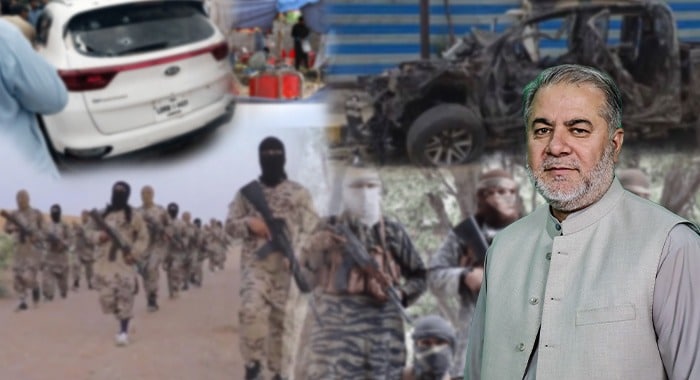Pakistan’s tribal regions are once again under siege not just from the barrel of a gun, but from betrayal, abandonment, and silence. The cycle of terror is back, and its pattern is painfully familiar: first, the security forces are ambushed; then come attacks on state officials; and finally, the silencing of voices calling for peace most recently, the martyrdom of ANP leader Maulana Khan Zeb in Bajaur. This is not merely a security lapse it is a deeper national failure, a moral collapse, and, perhaps, part of a grander design.
Bajaur, once a Taliban stronghold, has now emerged as a stronghold for Daesh (Islamic State). According to local intelligence officials, nearly 90% of the former Tehrik-e-Taliban Pakistan (TTP) militants in the region have now aligned themselves with the more radical and transnational agenda of Daesh. The shift is not ideological it is strategic. It signals a renewed phase of militancy that is more brutal, more organized, and more globally connected.
This radical realignment has coincided with a chilling increase in targeted killings. The martyrdom of Maulana Khan Zeb, a respected ANP leader and religious scholar, is emblematic of a dangerous trend — peace advocates in the tribal belt are being eliminated with impunity.
Maulana Khan Zeb was more than a politician. He was a bridge between communities, a strong proponent of non-violence, and a campaigner for justice. His consistent demand for political and constitutional rights for the tribal people made him a threat to those who thrive in chaos. His assassination in Bajaur is part of the same chain of violence that previously claimed the lives of Assistant Commissioners, FC personnel, and moderate religious figures across the region.
These attacks are not isolated. They are targeted. Deliberate. And deeply political. Why are those who speak for peace being systematically killed? Because certain forces both internal and external want the tribal belt to remain in perpetual turmoil. Because in lawlessness, vested interests prosper. Because a peaceful tribal region threatens the very foundations of those who rely on instability to control narratives, resources, and geopolitics.
The recent carnage in Balochistan where buses traveling from Quetta to Punjab were intercepted and Punjabi passengers executed underscores the ethnic and sectarian dimensions of this new wave of terror. This wasn’t just a terrorist attack. It was an act of ethnic cleansing, and it speaks to a larger, more sinister plan to divide Pakistan along ethnic lines.
It is in this context that Indian Prime Minister Narendra Modi’s boast that the “Sindhu mission is still underway” cannot be ignored. The suggestion that these attacks are part of an ongoing covert operation to destabilize Pakistan seems less conspiratorial and more plausible with each passing day. When former Afghan General Saadat now based in the U.S openly acknowledges India’s use of Afghan soil to sponsor terrorism in Pakistan, the writing is on the wall.
Yet amid all this, where does the responsibility lie at home? The provincial government of Khyber Pakhtunkhwa, led by PTI for a third consecutive term, has utterly failed the people of the tribal districts. When FATA was merged into KP in 2018, it was heralded as a transformative moment — a promise of development, democracy, and justice. But years later, there is no functioning police system, no judiciary, and no visible investment in public welfare. The promises made to the tribal people lie in ruins.
Instead of integration, the people have been abandoned. The vacuum left by the state has been filled by militants, drug cartels, smugglers, and foreign agents. Disillusionment is deepening. The sense of betrayal is profound. Many are now questioning whether the merger was a mistake, with growing voices calling for a reversal of the constitutional amendment that brought them into KP.
ANP leaders like Maulana Khan Zeb had warned of this. They believed in constitutional struggle, political solutions, and grassroots dialogue. And for this, they are being slaughtered.
Let it be said without ambiguity: the continued killing of ANP leaders and other peace activists is not just a tragedy it is a national security crisis. The ANP is the only political force that has consistently and courageously taken a clear stand against terrorism and extremism. It has paid the highest price, and yet its voice is still muffled by both the state and the mainstream discourse.
If Pakistan is to survive this hybrid war a war fought with bombs, ideology, and betrayal — then the state must re-establish its writ in the tribal areas, deliver on its promises, and protect those who speak for peace. Because those who silence peace are not just the enemies of one party or one region — they are the enemies of Pakistan.





